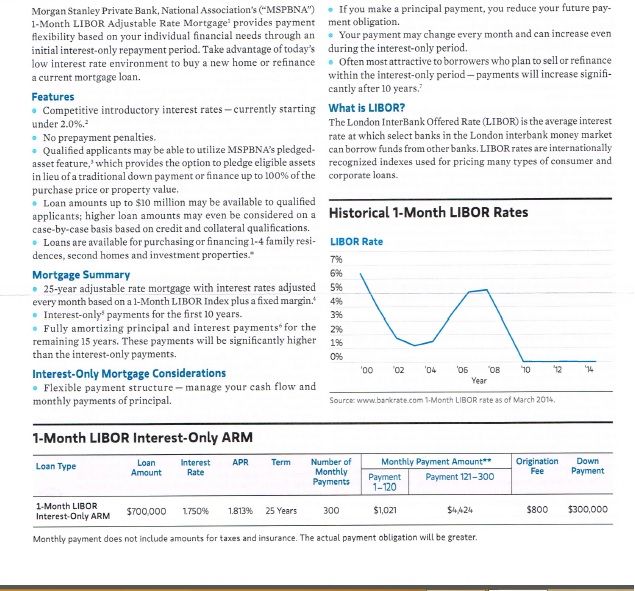Re: treasury and mortgage rates
"Yields on 10-year and 30-year Treasury securities are typically used to set long-term mortgage rates. Loans with short initial terms (1-, 3-, and 5- year ARMs, e.g.) are pegged to shorter-term securities. So when bond yields drop, typically, conventional mortgage rates fall as well (see historical graph below). Conversely, when yields rise, so do mortgage rates. Why? If a lender chooses to sell your mortgage loan to an investor, the lender will likely use Treasury yields as a benchmark for value."
Source:http://mortgage-x.com/general/treasury.asp
Click the link for the graphs
"Yields on 10-year and 30-year Treasury securities are typically used to set long-term mortgage rates. Loans with short initial terms (1-, 3-, and 5- year ARMs, e.g.) are pegged to shorter-term securities. So when bond yields drop, typically, conventional mortgage rates fall as well (see historical graph below). Conversely, when yields rise, so do mortgage rates. Why? If a lender chooses to sell your mortgage loan to an investor, the lender will likely use Treasury yields as a benchmark for value."
Source:http://mortgage-x.com/general/treasury.asp
Click the link for the graphs

